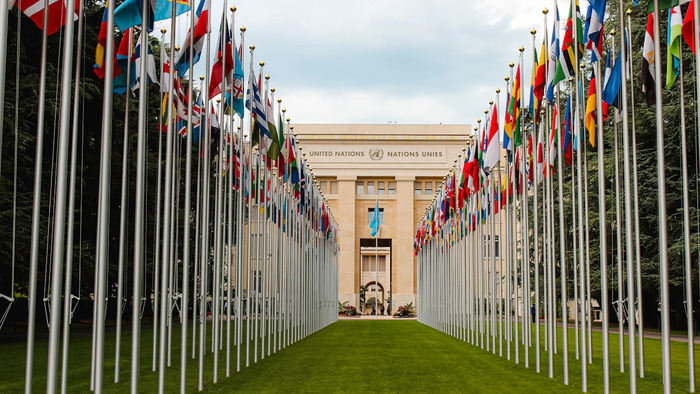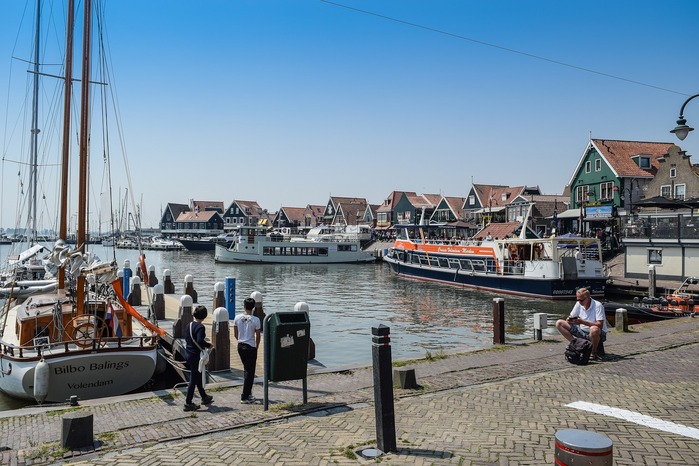
Source: unsplash
Ever feel like your competitors are getting ahead thanks to lower production costs? Do you prefer global sourcing or local sourcing? Low-Cost Country Sourcing (LCCS) could be the secret weapon you’ve been missing. This strategy can unlock significant cost savings and propel your business to new heights, but it’s not a one-size-fits-all approach.
In this post, we’ll delve into the best 9 LCCS destinations of 2024, helping you identify the perfect partner to boost your bottom line.
Top 9 Low-Cost Country Sourcing Destinations 2024
China
✓ Manufacturing Scale
⚠ Quality Control
Vietnam
✓ Rising Star
⚠ Infrastructure
Key Considerations
1. China

Source: unsplash
Advantages of Low-Cost Sourcing from China
China stands out as a prime destination for low-cost country sourcing due to its competitive labor costs. The abundance of skilled workers allows businesses to streamline production processes and reduce expenses significantly.
The diverse manufacturing base in China offers product sourcing, from electronics to textiles, catering to various industry needs.
At the same time, China also has advantages in importing doors and windows, including lower labor costs, policy support, etc.
Challenges in Sourcing from China
Despite its advantages, low-cost country sourcing in China presents some risks that businesses must navigate effectively.
Quality assurance issues can arise due to differences in standards and practices, requiring meticulous oversight to maintain product quality. Want to learn more about the quality standards of Chinese factories? Read our post to debunk common misconceptions.
Moreover, logistic risks, such as delays in transportation or supply chain disruptions, can impact operational efficiency and timely deliveries.
2. Vietnam
Labor Costs
In 2023, the Vietnamese workforce expanded to 52.4 million people, with an average monthly income of VND 7.1 million (US$291.34). Men earned an average of VND 8.1 million (US$332.38), while women received VND 6 million (US$246.20). This difference highlights the gender wage gap in the country’s labor market.
Infrastructure
Vietnam’s infrastructure development plays a crucial role in attracting businesses for low-cost country sourcing.
The service sector saw an increase of 553,600 workers, while the industrial and construction sector added 248,200 employees in recent years. However, challenges persist in the agriculture, forestry, and fisheries sector, which shed 118,900 jobs during this period.
Challenges
Quality Control
Vietnam offers undeniable cost benefits, but ensuring top-notch quality requires vigilance. To bridge the gap, implement stringent quality control measures.
No matter what products you’re sourcing from Vietnam, remain regular inspections and clear communication with suppliers. Ensure that the factory implement ethical production especially when it comes to clothing manufacturing. Learn how to find a manufacturer for your apparel brand.
Supply Chain Risks
Navigating supply chain risks is vital for successful low-cost country sourcing operations in Vietnam. Businesses need to address potential disruptions by working with multiple suppliers and establishing robust logistics strategies.
3. Bangladesh

Source: pixabay
Advantages
Labor Costs
When considering low-cost country sourcing, Bangladesh shines as a cost-effective destination due to its competitive labor costs.
The average worker in Bangladesh earns significantly less compared to other countries, translating into major savings for your business. But Bangladesh isn’t just about affordability. You’ll also benefit from a skilled workforce across various industries, allowing you to maintain competitive pricing without sacrificing quality.
Government Support
Bangladesh offers substantial government support to businesses engaged in low-cost country sourcing.
The authorities have implemented policies and incentives to encourage foreign investments. This support extends to regulatory assistance, financial incentives, and infrastructure development, creating a conducive environment for businesses looking to establish a presence in the country.
Challenges
Compliance Issues
Low-cost country sourcing in Bangladesh offers a treasure trove of opportunity, but navigating the legalities can feel like a maze. Fear not! The Bangladeshi government actively supports foreign businesses, but it’s crucial to ensure you adhere to international standards and regulations.
Here’s how to stay compliant and avoid costly headaches:
- Stay Informed: Compliance regulations can evolve quickly. Stay ahead of the curve by subscribing to updates or partnering with a local expert.
- Build Strong Internal Controls: Having robust internal systems in place demonstrates your commitment to compliance. This might involve clear documentation, regular audits, and employee training.
Communication Barriers
Sourcing in Bangladesh can be a game-changer, but language and cultural differences can throw a wrench in the works. Misunderstandings can lead to delays and frustration.
Equip your team with basic Bengali phrases. It shows respect and fosters trust.
Understanding Bangladeshi customs and business etiquette goes a long way. A little research can prevent faux pas and pave the way for a productive partnership.
4. Mexico

Source: unsplash
Mexico emerges as a strategic choice for low-cost country sourcing in 2024, offering distinct advantages and facing notable challenges.
The proximity to the US serves as a significant advantage, facilitating efficient trade relations and streamlined supply chains. This geographical advantage enables businesses to reduce transportation costs.
Moreover, Mexico boasts a skilled workforce proficient in various industries, providing companies with talent capable of driving innovation and productivity.
Challenges
Security Concerns
Mexico’s low-cost country sourcing scene is booming, but security concerns can be a lingering worry. While the country has made significant strides in improving safety measures, some areas still face higher crime rates.
Collaborate with local authorities and security experts. They can provide valuable insights on regional risks and help you establish a strong security network.
Economic Stability
Mexico’s low-cost sourcing potential is undeniable, but ensuring long-term success requires navigating the economic landscape. While growth projections look sunny, uncertainties around government finances and reforms can create some cloud cover.
A flexible approach is key. Be prepared to adjust sourcing strategies based on economic shifts. This might involve diversifying your supplier base or exploring alternative sourcing options.
5. Thailand
Thailand isn’t just about affordability. It’s a treasure trove of talent! This Southeast Asian gem boasts a skilled workforce across various industries, from textiles to tech. This translates into operational efficiency, top-notch product quality, and a competitive edge for your business. Plus, Thailand’s booming economy creates a fertile ground for investment and future expansion.
Thailand’s infrastructure is developing rapidly, but some areas could benefit from further improvements. Before diving in, assess transportation networks and logistics capabilities. Investing in these areas can optimize your supply chain and streamline production.
Political fluctuations can happen anywhere, and Thailand is no exception. Mitigate potential risks by staying informed about developments and implementing proactive strategies.
6. Turkey

Source: pixabay
Turkey emerges as a strategic hub for low-cost country sourcing in 2024, offering a blend of advantages and challenges that businesses must consider.
The country’s strategic location serves as a gateway between Europe and Asia, facilitating efficient trade routes and enhancing market access. This geographical advantage enables companies to optimize supply chain operations.
The diverse manufacturing base in Turkey presents opportunities for businesses across various industries. Textiles stand out as one of the biggest export products from Turkey, reaching up to $16.8 billion in value, accounting for 18.5% of total goods exported. This sector’s robust performance highlights the country’s capabilities in meeting international demand and providing quality products to the global market.
Navigating economic fluctuations is essential when engaging in low-cost country sourcing from Turkey. Businesses must adapt to changing market conditions, monitor currency trends, and implement risk management strategies to mitigate financial uncertainties. Additionally, understanding the local regulatory environment is crucial for compliance with laws and regulations governing business operations in Turkey.
7. Philippines
English Proficiency
In the Philippines, English proficiency is a notable advantage for businesses engaging in low-cost country sourcing. The workforce’s ability to communicate effectively in English streamlines operations and fosters collaboration with international partners. This linguistic skill facilitates seamless interactions, ensuring clarity in negotiations and project management.
Labor Costs
The competitive labor costs in the Philippines make it an attractive destination for businesses seeking cost-effective solutions. With affordable wages compared to many Western countries, companies can optimize production expenses.. This cost-efficiency allows businesses to maintain competitiveness in the global market while maximizing operational efficiency.
Challenges
Infrastructure Issues
The Philippines is developing its infrastructure, but some areas might have limitations. To navigate this, assess logistical capabilities like transportation networks and ports. Consider investing in improvements or partnering with local providers who have robust infrastructure in place. This can ensure efficient supply chains and timely deliveries.
Natural Disasters
The Philippines is prone to typhoons, earthquakes, and other natural disasters. Don’t let these storms disrupt your sourcing journey!
Develop a robust disaster preparedness plan. This could involve diversifying your supplier base across different regions, establishing backup production facilities, or securing proper insurance. By having contingency measures in place, you can minimize disruptions and ensure a smooth flow of operations.
8. Indonesia

Source: pixabay
Indonesia, a rising star in the global economy, offers a plethora of opportunities for low-cost country sourcing. With a large workforce ready to drive innovation and support business growth, Indonesia presents itself as an attractive destination for companies seeking cost-effective solutions.
The country’s growing economy sets the stage for sustainable development and market expansion, creating a conducive environment for businesses looking to optimize their operations.
Advantages
Large Workforce
- Indonesia boasts a vast pool of skilled workers eager to contribute to various industries. Leveraging this abundant labor force can enhance production efficiency and meet the demands of diverse business sectors effectively.
- Partnering with local talent can provide valuable insights into market trends and consumer preferences, enabling businesses to tailor their products or services to specific needs.
Growing Economy
- Indonesia’s economic growth trajectory opens doors for investment opportunities and market penetration. As the economy expands, businesses can capitalize on emerging markets and establish a strong presence in the region.
- The favorable economic climate in Indonesia fosters business development and encourages entrepreneurship, paving the way for long-term success and sustainability.
Challenges
Regulatory Hurdles
- Navigating regulatory frameworks in Indonesia requires careful consideration and compliance with local laws. Understanding legal requirements and industry regulations is essential to avoid potential pitfalls and ensure smooth operations.
- Partnering with experienced legal advisors or consultants can help businesses overcome regulatory challenges and establish a solid foundation for sustainable growth in the Indonesian market.
Environmental Concerns
- Addressing environmental concerns is paramount when engaging in low-cost country sourcing from Indonesia. Sustainable practices and eco-friendly initiatives are becoming increasingly important in today’s global landscape.
- Implementing green strategies, such as reducing carbon footprint and promoting renewable resources, not only benefits the environment but also enhances brand reputation and attracts environmentally conscious consumers.
9. India
Advantages
Technological Expertise
India, renowned for its technological expertise, stands as a global leader in software development and IT services.
The country’s skilled workforce excels in cutting-edge technologies, offering innovative solutions to businesses worldwide. India’s technological prowess can enhance operational efficiency and drive digital transformation initiatives.
A thriving tech startup scene brings innovation and collaboration, offering custom solutions for businesses.
Large Workforce
India’s large workforce is a significant asset for businesses engaged in low-cost country sourcing. With a population exceeding 1.3 billion people, the country offers a vast pool of talent across various industries.
This abundant labor force enables companies to scale operations efficiently. India’s focus on education and skill development ensures a continuous supply of qualified professionals ready to contribute to organizational success.
Challenges
Bureaucratic Processes
Navigating the legalities can feel like untangling a giant ball of yarn. Complex regulations and administrative procedures can lead to frustrating delays.
Familiarize yourself with the legal requirements and compliance standards for your industry. This can save you time and headaches down the road.
Partner with a reliable consultant or lawyer who can navigate the legalities for you. Their knowledge can be invaluable in ensuring a smooth sourcing experience.
Quality Control
Maintaining top-notch standards is key to building a strong brand and keeping customers happy.
Don’t settle for flimsy checks. Implement rigorous inspection protocols throughout the production process. This might involve sending your own inspectors or partnering with a reputable quality control agency.
Choose your partners wisely. Conduct thorough supplier evaluations to assess their quality control practices and commitment to international standards.
Key Takeaway
Our exploration of the top 9 destinations for low-cost country sourcing in 2024 unveils lots of possibilities. Each nation presents a unique blend of advantages – skilled labor, cost-effectiveness, and strategic location – alongside its own set of challenges.
The key to success lies in strategic evaluation. By carefully assessing your supply chain needs, you can unlock the true competitive edge these countries offer. China’s growing prominence as a global sourcing hub exemplifies the dynamic nature of this landscape, providing you more chance to find suitable manufacturers.
This concludes our exploration, but the journey of successful low-cost country sourcing is just beginning. Learn more details about the advantages and disadvantages of LCCS and unlock the full potential of this powerful sourcing strategy.







-300x198.png)